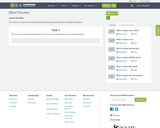
This resource contains an overview of the resource, printable forms, and student samples.
- Subject:
- Elementary Education
- English Language Arts
- Material Type:
- Lesson Plan
- Author:
- Stephanie Genco
- Date Added:
- 05/21/2019

This resource contains an overview of the resource, printable forms, and student samples.
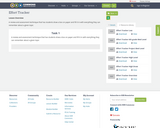
A review and assessment techinique that has students draw a box on paper and fill it in with everything they can remember about a given topic

In this collection, we are sharing a meta-assessment rubric, mock reports, and training support materials created by a team at James Madison University to foster equity in educational programming and outcomes assessment. The intention of sharing these materials under creative commons license is to provide other organizations or institutions a starting place to expose, model, and train others on equity considerations when designing and evaluating programming. This content was developed in partnership with the Center for Assessment and Research Studies and the Division of Student Affairs at James Madison University.
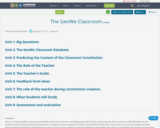
This is a teacher guide for operating a GenWe classroom. From the very beginning to the launch of the program, these resources will help teachers and students build the ideal learning environment to improve social competence. What is the GenWe Classroom? It is an elective course for middle and high school students designed to help them learn how to interact and cooperate and use technology responsibly. The class is managed by the students and teachers collaboratively. The structure of the class allows the students to make decisions based on evaluating the input from peers, near-peers, and adults. In order for normal social situations to occur, the students need to be allowed to manage themselves, including their learning. Ideally the GenWe Classroom will include a budget. Students will be responsible for planning the learning materials they will need for the semester.
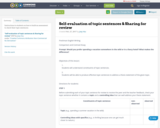
Instructions to students on how to build an assessment to check their topic sentences.
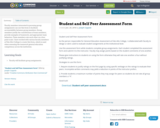
Faculty members interested in pursuing group assignments can use this form to facilitate accountability between group members. Group members justify the contributions of team members, provide examples of teamwork, and appropriate team behaviors. Team members rate each other on a four point scale. I have worked with various faculty members at Palo Alto College to create this form, which is used when assessing the teamwork general education competency across the institution.